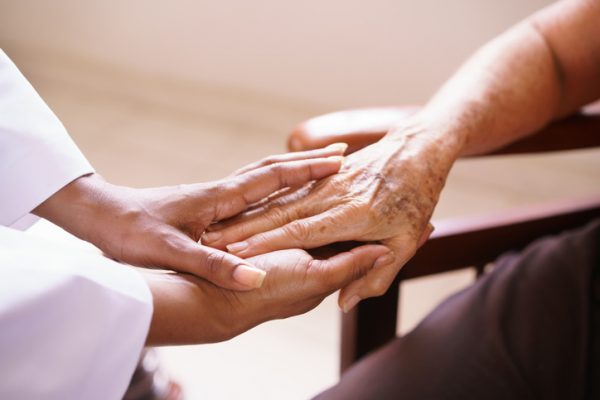
A quarter of Medicare spending occurs during the final year of a patient’s life. Billions of those dollars go toward care that is misaligned or unwanted, which is often due to a lack of planning for end-of-life preferences and processes.
Planning for end-of-life care is something many people want to avoid thinking about — but it’s necessary. Planning not only ensures that a patient’s wishes are respected, it also helps reduce costs by preventing hospitals from spending billions on treatments patients never would have chosen.
Houston Methodist Coordinate Care, the health system’s accountable care organization, is lowering costs for its patients at the end of life through a partnership with an advance care planning startup. The ACO has been working with Koda Health for more than three years — and it is saving money by getting patients more involved in their end-of-life care plan.

Solving Healthcare’s Provider Data Problem Starts with Interoperability
Break down the silos. Take control of your provider data.
Houston-based Koda, founded in 2020, aims to give people an easy way to make and share their end-of-life decisions before a crisis occurs.
“Many people never get the chance to document or share their medical wishes before facing a serious illness or emergency. As a result, their loved ones and doctors are left to make difficult healthcare decisions without clear guidance — leading to unnecessary treatments, stress and potential conflicts. Families often assume they know what their loved ones would want, but studies show they’re right only about half the time. This uncertainty not only impacts patients and families emotionally but also creates a massive financial burden on healthcare systems,” explained Tatiana Fofanova, Koda’s CEO.
Koda’s digital platform ensures that patients’ medical preferences are legally documented, clearly stated and available whenever they are needed.
The platform guides users through the process of making big decisions about their future medical care through simple questionnaires, educational videos, and other interactive tools. Users clarify their preferences for things like life support and who they trust to make choices for them, Fofanova said.

What Are Healthcare Organizations Getting Wrong about Email Security?
A new report by Paubox calls for healthcare IT leaders to dispose of outdated assumptions about email security and address the challenges of evolving cybersecurity threats.
Once a patient makes their choice, Koda automatically generates legally recognized documents, which are integrated with their medical records. Fofanova noted that these documents can be shared with family members and healthcare providers as well.
Julia Andrieni, CEO of Houston Methodist Coordinated Care, said her ACO chose Koda as its tech partner because it was the only platform on the market with culturally sensitive educational content on end-of-life issues.
Andrieni pointed out that Koda takes the end-of-life care discussion from the primary care physician’s office to the patient’s home. This way, they can be with their family and friends and have more time to consider their options.
“Nationally, there is never enough time and understanding to have a discussion on end-of-life issues with a [primary care physician]. Unfortunately, these discussions usually occur in acute hospitalizations where the patient may be sedated, unconscious and at the end of their life,” Andrieni said.
By educating patients on their choices, people are able to spend the end of their life within their home and with their loved ones, she added. Koda’s technology also translates into cost savings — as the costliest patients are those at the end of their life who have not yet addressed their preferences with their medical team, Andrieni stated.
Houston Methodist’s ACO and Koda are currently conducting a study on the efficacy of the advance care planning platform. Preliminary findings — based on 164 patients enrolled in Koda’s solution — show a 79% reduction in terminal hospitalizations, which refer to hospital admissions for patients in their final days.
The study’s preliminary findings also showed a 38% decrease in the utilization for intensive care units, which provide aggressive interventions that might not align with patient preferences. Additionally, there was a 30% rise in hospice utilization — a setting that prioritizes comfort and quality of life instead of curative treatments.
Overall, the study found that Koda’s technology resulted in a 19% reduction in the total cost of care for patients at the end of their life, equalling nearly $9,000 in savings per patient.
The study — which examined claims data 14-months post-intervention — is being submitted for a peer-reviewed publication.
Its findings align with industry data. For example, Aledade saved $13,000 per member over 14 for patients receiving advance care planning — making this a key metric in value-based care success.
Photo: diego_cervo, Getty Images






